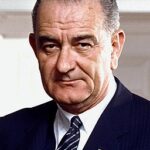President Lyndon B. Johnson authorized extensive FBI surveillance civil rights operations targeting prominent activists. This controversial decision allowed J. Edgar Hoover’s FBI to wiretap and harass civil rights leaders. The surveillance program directly contradicted Johnson’s public support for civil rights legislation.
The Surveillance Program
The FBI launched comprehensive monitoring operations against Martin Luther King Jr. and other activists. ⚠️ These activities included illegal wiretapping, mail interception, and character assassination campaigns. Hoover convinced Johnson that communist infiltration threatened the civil rights movement. The President approved these measures despite knowing their constitutional violations.
Constitutional Violations
The FBI surveillance civil rights program violated Fourth Amendment protections against unreasonable searches. 📊 Agents conducted warrantless wiretaps on King’s homes, offices, and hotel rooms. They also planted listening devices in private meetings and recorded personal conversations. These actions lacked proper judicial oversight or legal justification.
Political Motivations
Johnson feared that surveillance revelations would damage his civil rights agenda. 🔍 He believed controlling the narrative required monitoring activist strategies and potential controversies. The President also worried about Hoover’s power to expose political secrets through FBI files.
Impact:
The FBI surveillance civil rights program created lasting damage to constitutional protections and civil liberties. This controversial policy undermined trust between the government and civil rights organizations for decades.
Immediate Consequences
🔥 The surveillance operations attempted to discredit Martin Luther King Jr. through personal attacks. FBI agents leaked compromising information to journalists and government officials. These character assassination campaigns aimed to reduce King’s influence within the civil rights movement. The harassment also targeted other prominent activists and organizations.
Constitutional Damage
The program established dangerous precedents for government surveillance of American citizens. 📉 Constitutional protections weakened as federal agencies expanded domestic spying operations. Courts later ruled many of these activities violated Fourth Amendment rights. The surveillance culture spread to other government agencies and programs.
Long-term Political Effects
Public revelations of the FBI surveillance civil rights operations damaged government credibility permanently. 🌍 The Church Committee investigations in the 1970s exposed widespread illegal activities. These findings led to new oversight requirements for intelligence agencies. Civil rights organizations remained suspicious of federal law enforcement for generations. The scandal contributed to broader public distrust of government institutions during the Vietnam War era.
